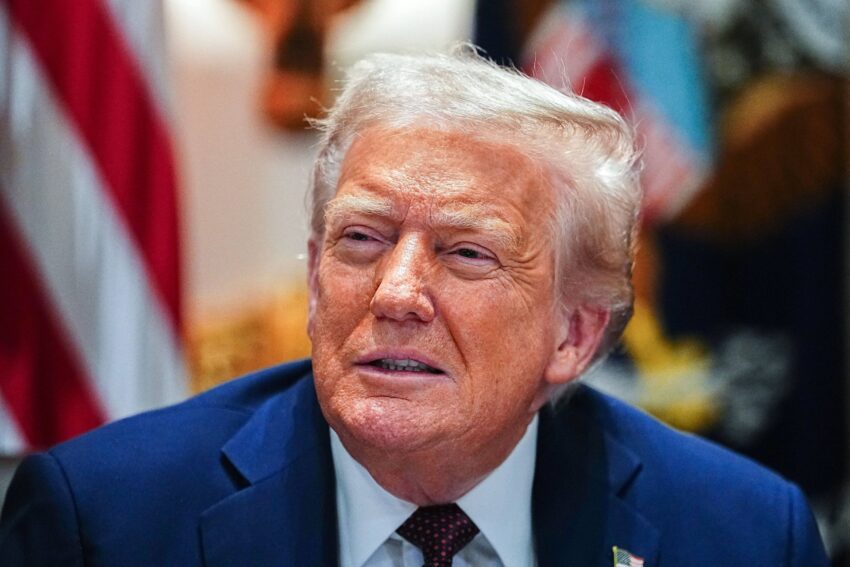President Donald Trump’s sweeping new tariffs are raking in unprecedented sums for the federal government. However, can these massive cash flows, already topping tens of billions monthly, truly put a dent in America’s $37 trillion national debt? Knewz.com has learned that according to the Committee for a Responsible Federal Budget (CRFB), a nonpartisan fiscal watchdog established in 1981, the answer is yes — at least in part, as the organization describes the revenue generated by tariffs as both “meaningful” and “significant.”
Record revenues as a result of Trump’s tariffs

Since returning to the White House, Trump has enacted “reciprocal tariffs” against nearly every major U.S. trading partner. In July alone, the federal government collected about $25 billion in tariff revenue, i.e., more than triple the amount from late 2024, according to CRFB estimates. The organization further projects that if the current structure remains, the tariffs will add $1.3 trillion in new revenue through the end of Trump’s term and $2.8 trillion through 2034. That projection is $600 billion higher than estimates made in May, reflecting the rapid expansion of tariff coverage. For context, tariffs have traditionally contributed just 1 to 1.5% of federal revenues. However, in the fiscal year 2025, they accounted for 2.7%. Some analysts believe the figure could climb to 5% if Trump’s policies remain in effect.
Impact of Trump’s tariffs on national debt

The scale of new revenue raises the question of whether tariffs can meaningfully address the federal debt, and CRFB suggests that they could. “The recent tariff increases are likely to meaningfully reduce deficits if allowed to remain in effect or replaced on a pay-as-you-go basis,” the organization wrote in a recent analysis. If sustained, the tariffs could reduce deficits by up to $2.8 trillion over the next decade. However, that figure still represents only a fraction of the nation’s $37 trillion debt load. By comparison, annual income and payroll taxes cover more than three-quarters of federal revenues. Even at record levels, tariffs cannot replace core tax streams or fully bridge the fiscal gap. Experts also note that tariff revenues are less predictable than other forms of taxation. Trade volumes, exemptions and retaliatory tariffs by other nations can shift collections sharply, making them a volatile tool for long-term debt planning.
Tariffs weigh heavily on households and businesses

It has been reported that the gains for the Treasury come at the cost of American households and businesses. Economists widely agree that companies pass tariff costs along to consumers through higher prices. Research from the Yale Budget Lab found that the financial burden operates much like a regressive tax. Families in the second-lowest income tier saw average annual expenses rise by about $1,700 due to tariffs, while households in the top 10% of earners paid an average of $8,100 more each year. Tariffs also raise concerns for national defense, as the Council on Foreign Relations cautioned in July that increased costs on imported components “make it more expensive to meet national defense requirements.”
Trump floats the idea of ‘tariff dividend checks’

Trump has floated the idea of issuing “tariff dividend checks” to American families, framing them as a way to share in the government’s new revenue stream. But most economists argue the plan does not account for the size of the federal budget. With government spending projected to exceed $6 trillion in 2025 and annual deficits over $1 trillion, tariff revenues, although historic, remain small compared to overall obligations. The CRFB, whose board includes former directors of the Congressional Budget Office and the Office of Management and Budget, as well as members of the Federal Reserve, has long advocated for deficit reduction and greater spending discipline. While it views Trump’s tariffs as a significant fiscal development, it maintains that genuine progress on the debt will require broader reforms to federal taxes and federal entitlement programs.
The post Trump tariffs could have ‘meaningful’ impact on national debt appeared first on Knewz.
Click this link for the original source of this article.
Author: Samyarup Chowdhury
This content is courtesy of, and owned and copyrighted by, https://knewz.com and its author. This content is made available by use of the public RSS feed offered by the host site and is used for educational purposes only. If you are the author or represent the host site and would like this content removed now and in the future, please contact USSANews.com using the email address in the Contact page found in the website menu.





